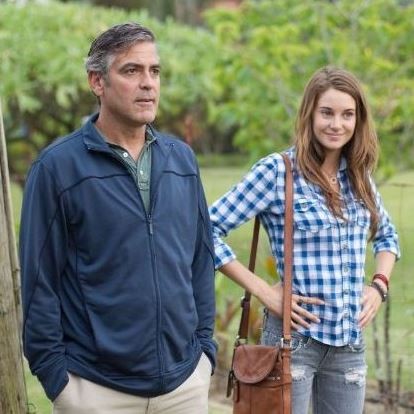The end is near. It’s day four of the annual pre-Oscar conflagration here at Sing All Kinds. Where we’ve been:
Day One: Editing/Cinematography
Day Two: Lead Performances
Day Three: Supporting Performances
Tomorrow we’ll finish up with Best Director and Best Picture. But before that, it’s time for the starting point of most film projects, the screenplays:
Best Adapted Screenplay
The Nominees: The Descendants, Hugo, The Ides of March, Moneyball, Tinker Tailor Soldier Spy.
Chris Herrington: The Ides of March and Tinker Tailor Soldier Spy are the easy outs as far as what Will Win this category. Hugo has the most nominations of any of the movies in this group, but I really expect it to do its damage in the physical filmmaking categories. Which leaves us with Moneyball and The Descendants, both of which certainly come across as screenplay-first kind of projects. Given that Moneyball has gotten multiple nominations and unites two of the biggest names in screenwriting — Aaron Sorkin and Steve Zaillian — on its credits, it looks like a viable contender. And this seems like its best chance to win something. Still, I think The Descendants has a little more overall Oscar strength than Moneyball and will be considered more screenplay-driven than Hugo. So that’s my pick.
Should Win: I’ll say my piece here on Moneyball, which, to my mind, is the most overrated film of 2011. I say this as an amateur sabermetrician since discovering Bill James in junior high and as someone who’s read Michael Lewis’ book: The book Moneyball is flawed to begin with and the film doesn’t seem to really understand the book. The result is a film that pretends to be smart rather than a smart film. It apes the brainy verve of Sorkin’s roughly similar The Social Network, but in no way matches it. The Ides of March is even more pleased with itself than Moneyball and has even less reason to be. That’s a bad nomination. I think the way Hugo fruitfully personalizes its source material is probably more a function of director Martin Scorsese than the script. And that leaves me with The Descendants and Tinker Tailor, both solid options.
Tinker Tailor is, I’m sure, a terribly impressive distillation of its complicated source material. You’ve testified to that already and I’m sure you will again. I was impressed by it but also, like a lot of people coming to the material cold, a little confused at times. Where The Descendants wobbles, I think, is in its direction. I think the mix of marital issues, real estate concerns, parenthood, and sense of place are all assembled very well and I can actually imagine this being an even better film in the hands of another filmmaker. So my vote’s going there.
Got Robbed: I’ll make A Dangerous Method an honorable mention here, but my real choice is going to be an unpopular one: The Help. Having spent some time with Kathryn Stockett’s best-seller, I can say that director Tate Taylor’s screenplay improves on the source material. The Help was justly criticized for not fully breaking from the “white crusader” dynamic typically deployed in Hollywood films about Southern racism. But it wasn’t given enough credit for the interesting and instructive ways it tweaks that formula. I thought much of the negative critique it got felt pre-conceived, and these dismissals and attacks tended to bother me because I recognized myself in them. They’re what I assumed I’d be writing before I actually saw it. One piece I saw derided the film as something like “a feel-good movie for white people.” I’d say it became a feel-good movie for a lot of critics and social media snarkaholics who were able to use it to make themselves feel superior without really dealing with the film or what it’s doing in any substantial way. The Help is an imperfect film, but one that wrestles with its issues with more complication and less comfort than most of its detractors recognized.
